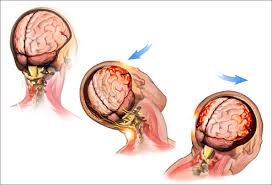**This video was created by our district's videographer, Jamie Watson. We learned this morning of his untimely passing. We are grateful for our time with him and for all of the opportunities he provided for students to share their stories.
**This video was created by our district's videographer, Jamie Watson. We learned this morning of his untimely passing. We are grateful for our time with him and for all of the opportunities he provided for students to share their stories.
Understanding my tween/teen brain.
Let's build on our talents and strengths. You are working to become a strong researcher with the tools necessary for this year and beyond. Your success in high school and college begin with the strong foundation you build for yourself in middle school. Find your passion!

HW: Watch at least one part/segment of The Teen Brain.
http://www.pbs.org/wgbh/pages/frontline/shows/teenbrain/view/
Let's build on our talents and strengths. You are working to become a strong researcher with the tools necessary for this year and beyond. Your success in high school and college begin with the strong foundation you build for yourself in middle school. Find your passion!
Why is the Prefrontal Cortex considered the CEO of your brain?
Why is it essential for you to protect your brain?
Thanks PRISM crew for a great class discussion today. Be safe with your noggin!
HW: Watch at least one part/segment of The Teen Brain.
http://www.pbs.org/wgbh/pages/frontline/shows/teenbrain/view/
Highlight at least three pieces of information you learned from this program that you found interesting on Flipgrid - our grid for PRISM for ALL is https://flipgrid.com/ubvz5qe and the grid for this activity is https://flipgrid.com/eefb37
You are to complete viewing the ENTIRE program by Tuesday, October 2, and complete any 8 of the following questions:
- Parents may feel that for a brief period of time that their teenager is inhabited by…..?
- When will the period of rapid brain growth occur again for baby Natalie?
- What brain function is associated with gray matter?
- What did most people mistakenly believe about brain development?
- At what age has the brain reached 95% of its development?
- Explain what the brain grows like?
- Explain the “use it or lose it” principle in relation to brain development.
- Describe what the pre-frontal cortex is in charge of (ie. what it does).
- Where in the brain does the change occur that helps teens to regulate their emotions and solve problems effectively?
- In the study conducted at McLean hospital, how did teen brains compare to adult brains? (ie. describe the differences)
- What do the results of the McLean hospital study suggest about teen brains?
- Based on the findings from the McLean study, explain why miscommunication between teens & adults might occur?
- Explain why teens read emotions differently than adults
- How much sleep does an average teen get?
- What is the optimal amount of sleep that a teenager needs?
- What is the concern about teens with regards to their sleep patterns?
- What does your brain do while sleeping after learning a new skill?
What is the PRISM philosophy?
What does PRISM stand for and what does it mean to you?
PRISM HW: Multiple Intelligence Theory
Go to: http://www.edutopia.org/multiple-intelligences-assessment or use an assessment of your choice.
Take the assessment and copy down your results. Bring them to PRISM tomorrow. What do you think would be a good research track for you based on your results?
Preview this short video on famous failures - http://lucarinfo.com/inspire/dgifted.html
Combine your learning from the video and review the 3 ring conception of giftedness. What does this mean for you as a modern problem solver? What can we all learn from not being successful on our first attempt? How will you work to develop your grit and perseverance? What is gifted behavior?
I push into the 6th grade classes each year at the start of the year to explain the PRISM program and to discuss the various intelligences based on the work of Howard Gardner. We have a great time talking about talent development and how we can all grow in different areas when we spend time developing our strengths. We encourage students to self-select an enrichment opportunity that is the best fit for their gifts in WW-P. There is no test for PRISM gifted and talented enrichment and we are based on the Renzulli three-ring conception of giftedness. Here is the presentation given to all of the 6th grade students.
Gifted Today post on Renzulli
The gifted learner often needs more support than the bright child. In PRISM, we not only provide engaging enrichment opportunities, but we also focus on the specific social-emotional needs of the gifted. Here are three helpful links for parents of gifted learners:
NAGC Gifted Learners
Hoagies Gifted Resources
SENG
I look forward to working with your children this year!
Maker Ambassadors hosted their annual Take Apart Challenge on December 20 and 21. Students collected from parents and teachers and researched ways to safely deconstruct their items. They documented each stage of the process by taking pictures along the way. The MA crew collaborated with Dan Gallagher for a ThingLink extension. To learn more, check out Mr. Gallagher's blog post!
Subscribe to:
Comments (Atom)












